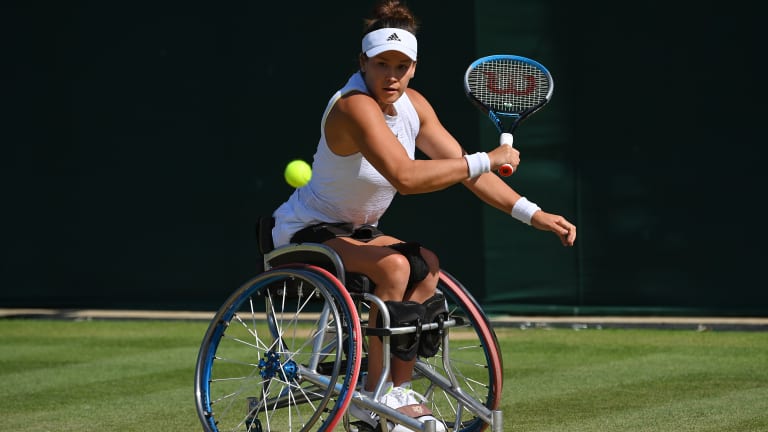Strength in diversity: How Jessica Pegula, Vania King and fellow founders created the Asian American Pacific Islander Tennis Association
By Oct 11, 2022Indian Wells, USA
2026 Eisenhower Cup at Indian Wells: Rybakina & Fritz seek title defense, Swiatek & Ruud reuniting
By Feb 24, 2026Opinion
Jessica Pegula and new architects eye the WTA Tour structure
By Feb 24, 2026Weekend Winners
Carlos Alcaraz, Sebastian Korda and Jessica Pegula pick up the intensity before the Sunshine Double
By Feb 23, 2026Social
Jessica Pegula has an answer to Zheng Qinwen's 'hilarious' question on "Player's Box" podcast
By Feb 22, 2026WTA Dubai, UAE
"A great birthday present": Jessica Pegula dismisses Elina Svitolina in Dubai for 10th career title
By Feb 21, 2026WTA Dubai, UAE
Jessica Pegula now 5-0 against Amanda Anisimova after working way back into Dubai semifinal
By Feb 20, 2026The Business of Tennis
Jessica Pegula to chair new WTA council focused on calendar reform
By Feb 19, 2026WTA Dubai, UAE
GI Illness forces Elena Rybakina to retire in Dubai, as lucky loser Antonia Ruzic advances
By Feb 18, 2026Australian Open
Elena Rybakina to resume rivalry with Aryna Sabalenka in Australian Open final
By Jan 29, 2026Strength in diversity: How Jessica Pegula, Vania King and fellow founders created the Asian American Pacific Islander Tennis Association
This national, non-profit advocacy group aims to better and more effectively represent a sizable but woefully underserved tennis-playing population.
Published Oct 11, 2022
Advertising
Advertising

King has a close connection with fellow Southern Californian Williams, and both have used their platforms to fight for cultural representation.
© 2016 Getty Images
Advertising

Mathewson, one of the top wheelchair players in the world, is part of a diverse group of AAPITA founding members.
© Justin Setterfield
Advertising

“I think being Asian or Asian American, there are always barriers to break, especially in sport,” says Pegula, who has risen to the Top 10.
© Getty Images